Latest update August 20th, 2024 10:04 AM
The Emerging Role of ECOWAS Court In The Sustenance Of The Rule Of Law And Community Integration In West Africa

The ECOWAS Court is composed of seven Judges, appointed from the Members on a pre-approved order of rotation that ensures that no two Judges are nationals of the same Member State. While the pioneer Judges appointed in 2001 got a five-year renewable term each, Judges have since 2006, been appointed on a single non-renewable term of four years. All the Judges that have so far served on the Court are selected from among professionally qualified individuals with considerable judicial experience in their respective countries of nationality. A Judge may also be appointed -a Judge Rapporteur, for any particular case by the President of the Court. The Registry of the Court is headed by a Chief Registrar, but the Court also has a Bureau comprising the President, the Vice President, and the Doyen (the longest serving judge of the Court), which oversees the administrative machinery of the Court.
ACTIVITIES SINCE INAUGURATION
The ECOWAS Court was inaugurated in January 2001, but did not sit until 2004 when it delivered its first ruling. Since then, and with increased access to it and enhanced jurisdiction from January 2005, the Court has delivered about 65 judgments in various aspects of Community law and human rights. The Court has heard and determined cases bordering on violations of human rights and fundamental freedoms.
THE ECOWAS COURT AND THE ADMINISTRATION OF RULE OF LAW
The Rule of Law therefore, is a concept of universal validity. The “need for universal adherence to and implementation of the Rule of Law at both the national and international levels” was endorsed by all Members States of the United Nations in the 2005 Outcome Document of the World Summit.
The United Nations General Assembly recognized that the rule of law applies to all States equally, and to international organizations, including the United Nations and its principal organs, and that respect for and promotion of the rule of law and justice should guide all of their activities and accord predictability and legitimacy to their actions. The 2012 Declaration affirms that the independence of the judicial system, together with its impartiality and integrity, is an essential prerequisite for upholding the rule of law and ensuring that there is no discrimination in the administration of justice, and emphasizes the right of equal access to justice for all, including members of vulnerable groups.
THE ECOWAS COURT, THE ADMINISTRATION OF JUSTICE AND GOOD GOVERNANCE
To discuss good governance in the context of a supranational institution like the ECOWAS will entail discussing the legal instruments the supranational body can properly and legally adjudicate over in order to enforce the agreed area of reference by the comity of countries which donated power to it to so do. The area the ECOWAS Court have often used to enforce some measure of good governance is with regards to human rights violation.
HUMAN RIGHTS AND GOOD GOVERNANCE: THE LINK
Good governance and human rights are mutually reinforcing. Human rights principles provide a set of values to guide the work of governments and other political and social actors. They also provide a set of performance standards against which these actors can be held accountable. Moreover, human rights principles inform the content of good governance efforts: they may inform the development of legislative frameworks, policies, programmes, budgetary allocations and other measures. On the other hand, without good governance, human rights cannot be respected and protected in a sustainable manner. The implementation of human rights relies on a conducive and enabling environment. This includes appropriate legal frameworks and institutions as well as political, managerial and administrative processes responsible for responding to the rights and needs of the population.
To human rights into the fabric of an ambitious regional effort to promote democracy, accountability, transparency, and the rule of law.
It also included a clause promising that the jurisdiction of the ECOWAS Court “shall be reviewed so as to give the Court the power to hear, inter-alia, cases
THE DISTINCTIVE FEATURES OF THE ECOWAS COURT’S HUMAN RIGHTS JURISDICTION.
The 2005 Protocol’s most important clauses appear in two short sentences in articles redefining the ECOWAS Court’s jurisdiction and access rules . Article 3 revises Article 9 of the 1991 Protocol and lists each ground of jurisdiction. The fourth paragraph states: “The Court has jurisdiction to determine case[s] of violation of human rights that occur in any Member State.”
Article 4, which adds a new Article 10 to the 1991 Protocol, identifies the litigants who have access to the ECOWAS Court. It includes a subparagraph authorizing the Court to receive complaints from “individuals on application for relief for violation of their human rights
By virtue of amended protocol access to the Court is open to “individuals and corporate bodies in proceedings for the determination of an act or inaction of a Community official which violates the rights of the individuals or corporate bodies”. This is an innovation for it is unusual for a new human rights court to grant direct access to private litigants.
In the African Charter system, for example, private litigants have direct access to the African Court on Human and Peoples’ Rights only if the respondent state has ratified the protocol establishing the Court and filed a separate optional declaration allowing private litigants to submit such complaints. To date, only seven of fifty-four African nations—four of them ECOWAS member states—have filed such declarations. The ECOWAS Court lacks any of these political buffers. ECOWAS judges have repeatedly affirmed that private litigants “have direct access to …the Court when their human rights are violated.”
ECOWAS COURT AND COMMUNITY INTEGRATION
The role of courts generally, and the ECOWAS Court in particular, in the integration process in West Africa cannot be over-emphasised. As an institutional mechanism for the interpretation of the Treaties, Protocols, and other legal instruments governing the working of the Community, the weight of the interpretative powers of the Community Court is expected to have significant impact on the patterns of development and future of the ECOWAS, its Member States, and individual citizens of the Community.
The ECOWAS is also one of the largest regional economic blocs in Africa, comprising sixteen sovereign States, covering a landmass of 5,112,903 square kilometres, an estimated combined population of about 252 million, and a combined GDP of over US$ 1,322 billion. Although a late addition to the Community Institutions of the ECOWAS, the Court is also one of the oldest among such similar institutions across the continent.
The ECOWAS Court represents a major addition to the efforts targeted at facilitating supra-national enforcement of national obligations and commitments which have been largely absent on the continent of Africa. While many of the RECs have upgraded their governing structure to accommodate some measure of judicial enforcement mechanism, only two of such courts have really established themselves in a manner reflective of the growing significance of regional framework for the furtherance of rule of law as an important component of regional integration efforts.
A studied examination of the role of such a Court within the institutional architecture of the parent organisation and the ecological factors that shape and are shaped by its decisions could throw up some useful albeit tentative propositions that could contribute to a theory of judicial regime of regional integration in Africa.
CONCLUSION
It is an undeniable fact that the role of the ECOWAS Court has been very important in the establishment of the supranational legal system within the West African region. The ECOWAS Court has autonomy as granted by ECOWAS Treaty and Protocols and this allows it to rule against the preferences of member-state governments, thus, promoting good governance, human rights and the rule of law in an atmosphere of integration.
The Court is an increasingly active and bold adjudicator of human rights and has made pronouncement bordering on enshrining good governance and rule of law. Since acquiring jurisdiction over human rights complaints in 2005, the ECOWAS Court has issued numerous decisions condemning human rights violations by the member states of the Economic Community of West African States. Among this Court’s path-breaking cases are judgments against Niger for condoning modern forms of slavery and against Nigeria for impeding the right to free basic education for all children. The ECOWAS court also has broad access and standing rules that permit individuals and non-governmental organizations (NGOs), to bypass national courts and file suits directly before the Court. In practice, however, the ECOWAS Court’s judgments have not been implemented by some states within the sub region, which states hide behind the sovereignty principle to abdicate clear responsibility.
Nevertheless, the ECOWAS Court, as an institution for the systematic enthronement of good governance, rule of law, justice administration and as a vehicle for the realization of the sub regional integration is emergent. It is increasing in courage boldness. Its well researched judgments which are mainly on states violation of human rights of the community’s citizen is the beginning of the important role this institution has come to play regarding good governance, rule of law, administration of justice and as a vehicle for sub regional integration.
Advertise Here
Tourism
-
 TOP 8 Tourists Attraction Centers In Africa
TOP 8 Tourists Attraction Centers In AfricaMar 11, 2019 0
THE PYRAMIDS AND THE SPHINIX The pyramids and the Sphinix... -
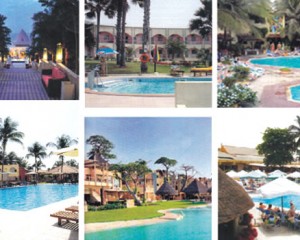 Top Hotels in Gambia
Top Hotels in GambiaMay 23, 2015 0
COCO OCEAN RESORT AND SPA With its discreet whitewashed... -
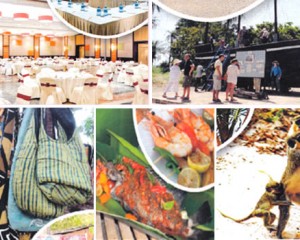 Destination Gambia
Destination GambiaMay 22, 2015 0
GAMBIA RATES HIGH FOR ‘CONFERENCE APPEAL’ Famed for its... -
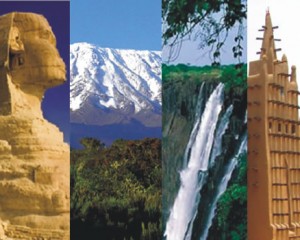 TOP 12 Tourist Attractions In Africa
TOP 12 Tourist Attractions In AfricaNov 19, 2014 0
… And if you have chance for picnic in Africa here is the...
Icon & Special Reports
Views
-
 Festac’77 at 40 Celebrations, Olusegun Obasanjo Decorated...
Festac’77 at 40 Celebrations, Olusegun Obasanjo Decorated...Nov 11, 2017 0
The world Black and Arts festival that was hosted in... -
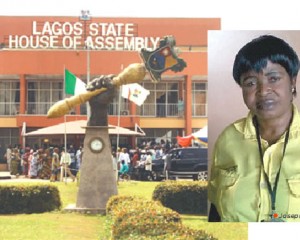 Lagos House To Honour Airport Cleaner Who Returned N12m To...
Lagos House To Honour Airport Cleaner Who Returned N12m To...May 27, 2015 0
Lagos State House of Assembly has invited Josephine Agwu... -
 African, gay campaign and neo-racism
African, gay campaign and neo-racismSep 28, 2013 0
As I have argued from the beginning of my position on this... -
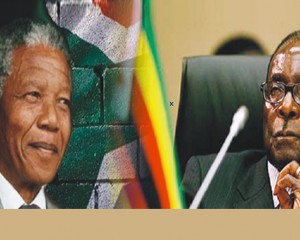 Between Mandela and Mugabe
Between Mandela and MugabeSep 20, 2013 0
South Africa legend and nobel laureate, Nelson Mandela,...
Entertainment
Nov 17, 2017 0
Tiwa savage is a natural singer with sense of passion to show case the dynamic qualities she possessed, which has earned her accolade and support from numerous fans across Africa and United Kingdom....


















